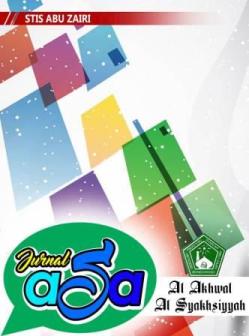Analysis of Islamic Family Law on the Abekhalan Tradition and Its Implications for Bride and Groom
DOI:
https://doi.org/10.58293/asa.v3i2.31Keywords:
Tradition, Islamic Family Law, ImplicationsAbstract
Abhekalan tradition is a tradition of East Java, especially Bondowoso. In practice, the tradition gets a lot of spotlight because it has violated the rules of Islam so that it deviates from the sacred purpose of the marriage sermon. A bhekalan in the tradition of Islamic law is synonymous with khitbah (proposal). The purpose of the courtship is to show the seriousness of a person to establish a relationship and bind the woman who has been betrothed so as not to be betrothed by another man, as long as the first suitor has not canceled the proposal.
The purpose of this research is to reveal the phenomenon of the people of Sukokerto, Pujer District in carrying out the Abhekalan tradition and its implications for the bride and groom who will enter the wedding gate.
This study uses a descriptive qualitative approach. With this type of Empirical Law research. The data source uses primary and secondary data sources. The data collection techniques are observation, interviews and documentation. The data analysis uses the Miles - Huberman and Saldana Interactive Analysis Model which includes data condensation, data reeduction, data presentation, and drawing conclusions. Checking the validity of the data using triangulation of data sources, methods, and theories
The results showed that there was a deviant behavior due to the Abhekalan Tradition that occurred in the village of Sukokerto, Pujer District, Bondowoso regency, as well as the analysis of Islamic family law perspective. The tradition of "Abhekalan," as a pre-marriage process is a hereditary tradition in most East Javanese communities, especially Bondowoso, including Pujer District .. In the analysis of Islamic family law, this phenomenon can not be claimed as a right. There are various verses of the Qur'an and Hadith that can be used as an analysis knife
Downloads
References
‘Abd al-‘Aziz al-Khayath, Nadzariyah al-‘Urf, Kuwait: al-Mausu’ah alKuwaitiyah , T.Th.
‘Ali al-Sha’idy al-‘Adwy, Hasyiyah al-‘Adwy ‘ala Syarh Aby al-Hasan, Bairut: Dar al-Ma’rifat.
‘Ali bin Sulaiman al-Mardawy, al-Inshaf, Bairut: Dar Ihya’ al-Turats, T.Th.
A.W Munawir dan Muhammad Fairuz, Kamus al-Munawir, Surabaya:
Pustaka Progresif, T.Th.
Holid, M. IMPLIKASI PERKAWINAN DI BAWAH UMUR TERHADAP KEHARMONISAN DALAM RUMAH TANGGA DI DESA SUKOGIDRI LEDOKOMBO JEMBER. ASA 2019, 1, 1-11.
Abd al-Rahman al-Jaziry, Kitab al-Fiqh ‘ala al-Madzahib al-Arba’ah,Libanon: Dar al-Kutub al-Ilmiyah, 2011.
Abd al-Rahman bin Abi Bakr al-Suyuthi, Asybah wa al-Nadzair, Dar Kutub al-Ilmiyah, 1983.
Abd al-Wahab al-Khalaf, ‘Ilm Ushul al-Fiqh, Kairo: Maktabah al-Da’wah alIslamiyah, T.Th.
Abd Aziz Dahlan, dkk (ed), Ensiklopedi Hukum Islam, Jakarta: PT Ikhtiar Baru Van Hoeve, 1997.
Adi Suwarno, Suparjo (2019). Tradisi Kawin Culik Masyarakat Adat Sasak Lombok Timur Perspektif Sosiologi Hukum Islam.(ASA : Jurnal Kajian Hukum Keluarga Islam, 1(1), 29–48
Adi Suwarno, S. (2020). Konsep nafkah dalam keluarga islam: telaah hukum islam terhadap istri yang mencari nafkah. Asa : jurnal kajian hukum keluarga islam, 2(1), 1–23.
Abu Zahra, Muhammad . 1958. Ushul Fiqh.Beirut:Daar Al Fikir al Arabi.
Al-‘Asqalani, Hafz bin Hajar .Bulugh al-Maram.Beirut:Daar Al Fikr.
Ali, Zainuddin . 2001. Hukum Perdata Islam Indonesia. Jakarta: Sinar
Grafika az-Zuhaily, Wahbah.2001. al-Fiqh al-Islamy. Damaskus:Dar al Fikr. Dedi Ismatullah.2011. Sejarah Sosial Hukum Islam. Bandung: Pustaka Setia Departemen Pendidikan dan Kebudayaan RI.1997. Adat Istiadat Daerah Nusa Tenggara Barat.
Hakim, Rahman.2000. Hukum Perkawinan Islam.Bandung: Pustaka Setia.
Hasan, Mustofa.2011. Pengantar Hukum Keluarga.Bandung :Pustaka Setia.
Idhomy, Dahlan.tt.Asas-asas Fikih Munakahat Hukum Keluarga Islam , cet ke-1 Surabaya: al-Ikhlas
Holid, M., al-Jazili, A. U., & Makrifah, A. (2021). DAMPAK NIKAH PAKSA TERHADAP KEHARMONISAN KELUARGA. ASA, 3(1), 18–32. Diambil dari https://ejournal.stisabuzairi.ac.id/index.php/asa/article/view/46
Soviah, A., Holid, M., & Mahbubah, R. (2021). NGINEP CALON MANTU. ASA, 3(1), 57–68. Diambil dari https://ejournal.stisabuzairi.ac.id/index.php/asa/article/view/49
Downloads
Published
How to Cite
Issue
Section
License
Copyright (c) 2021 Taufik

This work is licensed under a Creative Commons Attribution 4.0 International License.






